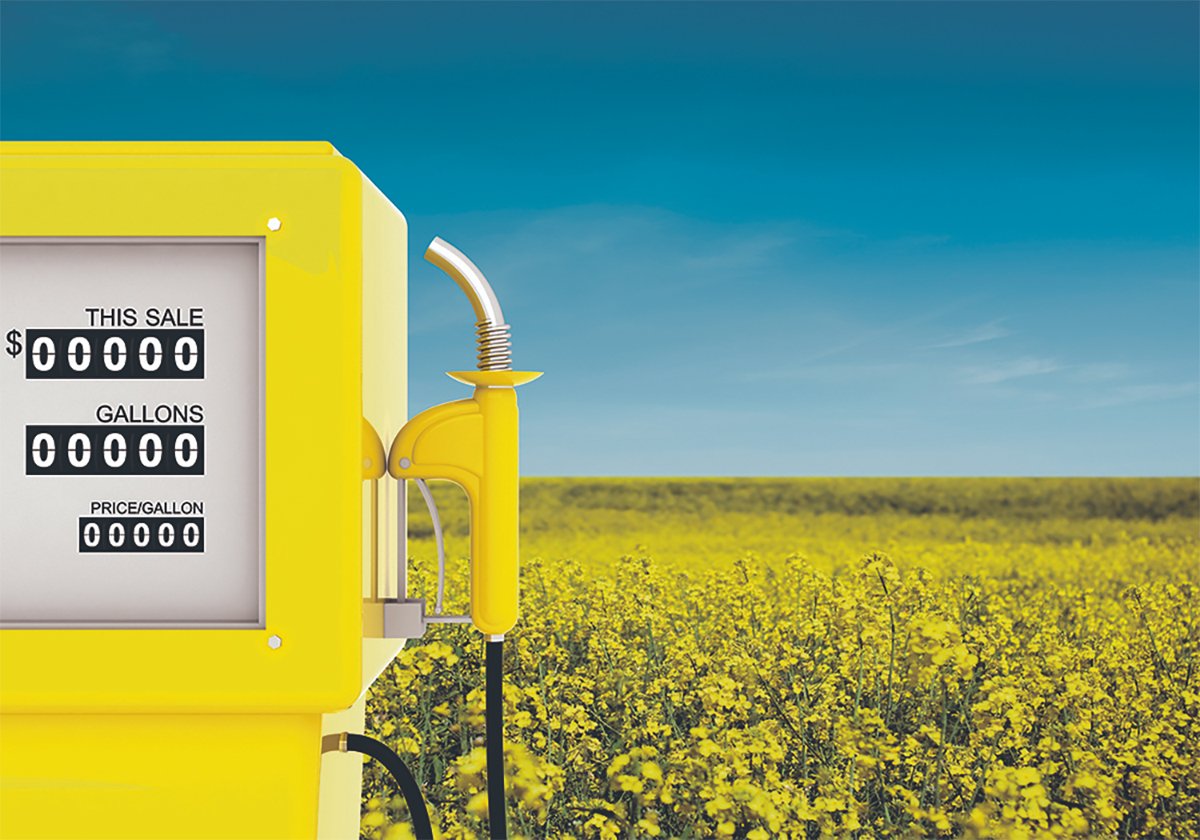TISDALE, Sask. – Saskatchewan intends to regain its role as front runner in the Canadian biofuel industry with a new $80 million loan program.
“It’s a program to really assist farmers and communities to become part of this very exceptional opportunity that exists for Saskatchewan to get into a real leadership position in terms of biofuels,” said premier Lorne Calvert.
The four-year Saskatchewan Biofuels Investment Opportunity, or SaskBIO Program, will provide repayable contributions to ethanol and biodiesel projects on a sliding scale ranging from two to 10 cents per litre.
Read Also

Biofuel sector happy with federal budget
Advanced Biofuels Canada says new Biofuel Production Incentive is a lifeline until CFR amendments are in place.
The loans depend on the amount of farmer and community investment in the plants.
For example, a 100 million litre plant that has 50 percent or greater farmer-community investment would get the full 10 cents per litre, generating the maximum contribution of $10 million, while the same facility with the minimum five percent local investment would get two cents per litre, or a $2 million loan.
A community investor is deemed as any individual or business whose primary address is located in a Saskatchewan municipality within 100 kilometres of the plant.
Calvert said the program places more emphasis on local investment than the $200 million federal EcoABC initiative, which has a 20 percent producer investment cap and does not acknowledge community participation.
Reaction to the announcement was largely positive, including from the opposition Saskatchewan Party.
“I think it’s a good thing for producers in our province. I think Saskatchewan can lead in this industry,” said environment critic Nancy Heppner.
Calvert told delegates attending the North East Saskatchewan Ethanol Forum, a one-day event put on by the Town of Tisdale and Ensask Biofuels Ltd., that with 45 percent of all the arable land in Canada and more than 40 percent of the nation’s agricultural feedstock, the province is the natural headquarters for Canada’s biofuel industry.
The premier said his government was the first in Canada to implement an ethanol mandate and has been a vocal advocate for a federal mandate and tax incentives. He thinks the loan program will vault the province back into a leadership role in Canada and beyond.
“This world is getting ahead of us and we are not about to be left behind,” the premier told the Tisdale meeting.
Biofuel supporters are thrilled that Calvert’s NDP government has set an “ambitious goal” of having a one billion litre ethanol industry and 400 million litre biodiesel industry by 2015. That is up from today’s actual production totals of about 300 million and 25 million litres respectively.
The $80 million loan program will be followed by other biofuel announcements. Calvert said he wants to establish at least one E85 ethanol corridor in the province, where properly equipped cars and trucks will be able to fuel up with gas containing an 85 percent ethanol blend.
And while he indicated there wouldn’t be any immediate enhancements to the 15 cents per litre ethanol incentive, there might be something happening on the biodiesel front, where proponents are calling for a 10 cents per litre provincial incentive.
“We need to sit down quickly to discuss this further,” said the premier.
The government will accept loan applications once all the program details have been finalized, which is expected to be in August.















